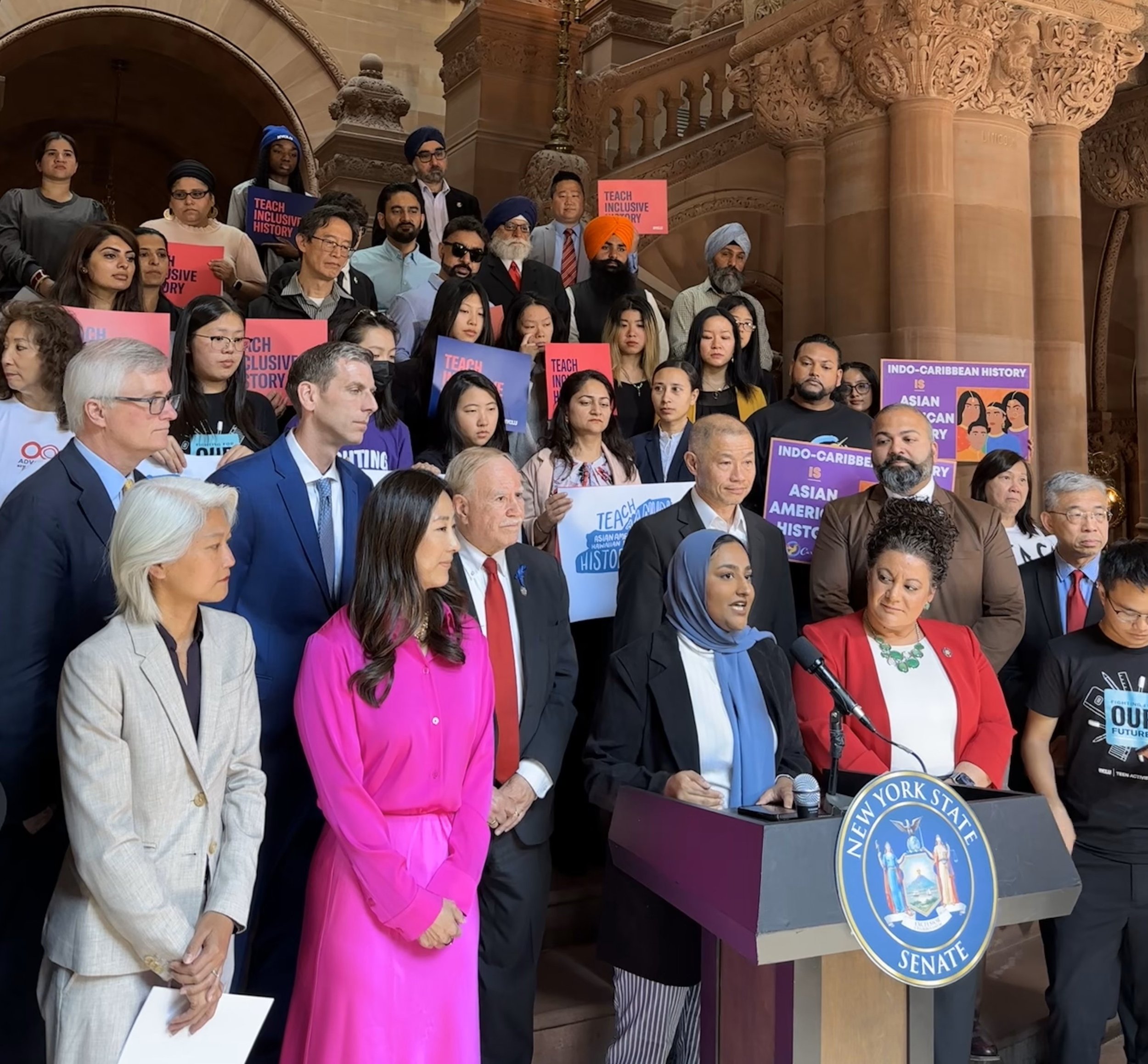
Inclusive Curriculum
Advancing Asian American, Native Hawaiian, and Pacific Islander History
Curriculum is a tool for collective liberation. We are building a movement so that voices from all historically marginalized communities are seen across our school curriculum - in math, science, social studies, and language arts.
We proudly support efforts to implement the Culturally Responsive Sustaining Education Framework to help educators create student-centered learning environments that affirm racial, linguistic and cultural identities, creates solidarity, and elevates historically marginalized voices.
The integration of Asian American, Native Hawaiian, and Pacific Islander (AANHPI) voices into the existing curriculum is a key step towards comprehensive curriculum reform. We are fighting for this in 4 pivotal ways:
-
CACF co-leads the Representing and Empowering AANHPI Community History (REACH) Coalition alongside OCA-NY to bring Asian American, Native Hawaiian, and Pacific Islander history (AANHPI) to New York State schools. The growing coalition, which was created in 2022, is composed of over 170 community leaders, parents, students, educators, and 70+ organizations that are committed to promoting inclusive and diverse curricula in schools. We are proud to be an intersectional, intergenerational, state-wide coalition fighting for our future.
Join the REACH Coalition here: bit.ly/JOINREACH
-
The Equity Budget Coalition secured $720,000 allocated in 2022 to support curriculum evaluation & professional development efforts.
• With this funding, CACF and AAARI are working together to do the following:
◦ Establish an Advisory Group
◦ Create and pilot a curriculum assessment tool
◦ Engage stakeholders
◦ Consolidate AANHPI curricular resourcesThe Goal: Assess the way AANHPI voices show up in the curriculum and identify where there are moments of exclusion or misrepresentation. This information is vital to actually implement AANHPI history in our schools.
-
Ethnic studies is an interdisciplinary field of study that elevates the histories, experiences, and contributions of marginalized racial and ethnic groups. Through ethnic studies, students learn about the experiences of marginalized communities and gain a more accurate and inclusive understanding of society, which is crucial to confronting systemic racism and inequality.
The Blue Ribbon Commission was formed by NYSED to discuss and propose suggestions for re-evaluating high school graduation requirements.
Many organizations led by CACF asked that the Blue Ribbon Commision recommend that taking an Ethnic Studies course should be a graduation requirement. The BRC will share their recommendations to NYSED later this year.
-
In 2022, Mayor Adams announced that the Department of Education would develop and implement a curricular resource to uplift AANHPI voices. This initiative is called Hidden Voices.
Hidden Voices is currently only being pushed in New York City. It is not a mandatory tool educators must use to teach nor is it integrated into existing curriculum. It is a good start in pushing to learn about AANHPI history, but it is supplemental and requires a lot of professional development. CACF is one the organizations supporting this curriculum development by offering feedback, when asked.
Infusing AANHPI curricular materials in schools can help:
Address racially-charged bullying in schools while combating ignorance around AANHPI communities that leads to hate and violence.
Confront the current erasure of AANHPI communities and voices creating space for healthy identity development of AANHPI students.
Create understanding and solidarity between students, especially students from historically marginalized communities.
Prepare students for diverse workplaces and communities by teaching critical thinking and cultural competency.
Who to Contact
For more information on Inclusive Curriculum, please contact Kulsoom Tapal, Education Policy Coordinator, at ktapal@cacf.org.

